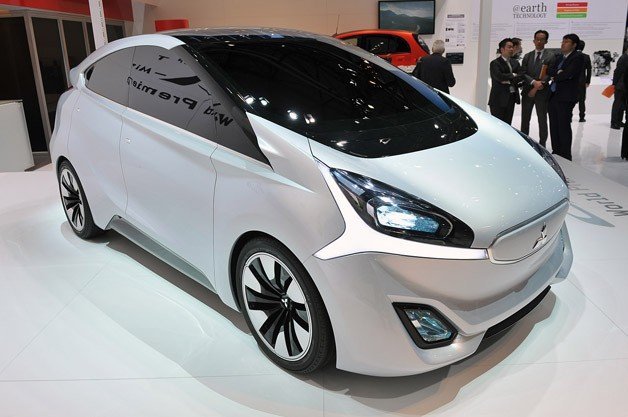Mitsubishi Debuts Concept CA-MiEV, a New Suburban EV

Today, at the Geneva Motor Show, Mitsubishi finally unveiled a version of the i-MiEV that looks much more more at home among the alternative-powertrain car fleet of the near future.
But there's more being elongated here than just the shape. The official range of the standard i (as the i-MiEV is known in the US) is 100 km. The Concept CA-MiEV – where the CA stands for Compact and Advanced – is supposed to be able to go 300 kilometers from a 28-kWh lithium-ion battery and lightweight 80-kW motor/inverter/charger unit. This is kind of astonishing, given the range estimates of other compact and midsize EVs on the market today – most are in the 128-160 km range. Of course, the specific test used to get the 300 km result matters, too, since the regular i received 158 km on the LA4 driving cycle range. The US-i has a 16-kWh pack.
The increased distance means that Mitsubishi is talking about the Concept CA-MiEV as the "suburban EV," with enough range for "about one week of driving for an average European driver." If you need more, Mitsubishi hints that the flat battery pack leaves room for a range-extender. Add in convenience features like WiTricity wireless charging and the ability for the car to send an emergency email if it's stolen, and you've got the commuting vehicle of the future. With a coefficient of drag of just 0.26 and boomerang lights, of course.
Mitsubishi is saying the CA-MiEV is "not planned for production," and is instead a showcase for "the various technologies MMC intends to introduce mid- to long-term across its range of global vehicles." That means, perhaps, some of the goodies here could make their way to rebadged, updated versions of the Peugeot iOn and Citroën C-Zero models, both based on the i-MiEV.


